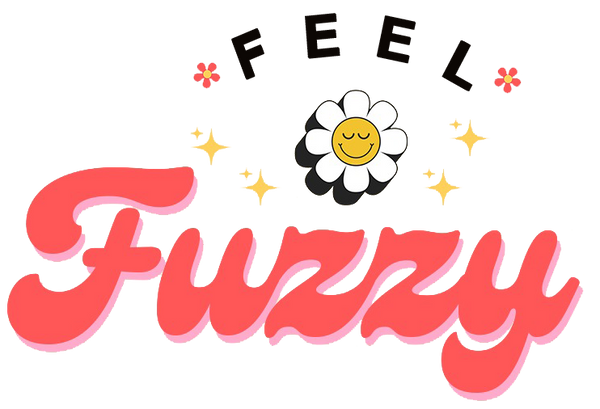
You Don’t Have to Drink Every Day to Have an Alcohol Problem
Share
TL;DR
Not all alcohol addiction looks like daily drinking or rock bottom moments. Many people function “normally” while quietly struggling with blackouts, guilt, binge cycles, and emotional dependence on alcohol. In this blog—based on our Feel Fuzzy Podcast with writer and creator Aniruddha Mahale—we explore how alcohol addiction often hides behind performance, productivity, and denial. Even if you don’t drink daily, you may still need to take a deeper look.
Introduction: The Myth of the Everyday Drinker

In our very first episode of the Feel Fuzzy Podcast, writer and internet personality Aniruddha Mahale sat down to talk about his two-year journey with sobriety. But what made his story stand out was this:
“I didn’t drink every day. I wasn’t getting into fights or losing my job. But I still had a problem.”
Aniruddha’s story breaks the stereotype we associate with alcohol addiction. He wasn’t drinking every morning or hiding bottles under his bed. He was, by many accounts, thriving. But he was also blacking out at birthdays, drinking through work events, and waking up with shame.
That quiet, functioning addiction? It’s more common than you think.
Functioning on the Outside, Struggling on the Inside

Aniruddha calls it “the illusion of control.”
“I would take breaks—100 days, 150 days—and say, ‘See? I don’t have a problem.’ But every time I went back, I went hard. That’s not control. That’s denial.”
Many people who struggle with alcohol don’t do it daily. Instead, they binge. Or they drink only at social events—but those events spiral. Or they drink alone on days when anxiety hits, and then promise themselves it won’t happen again.
These patterns don’t look like addiction. But they are.
Why This Matters in India’s Social Culture

In India, alcohol isn’t just accepted—it’s celebrated. Especially in urban, upper-middle-class circles, drinking is tied to success, charm, even masculinity.
As Aniruddha puts it:
“I got drunk at baby showers. Work events. Someone’s parents’ anniversary. I made scenes I’m not proud of. And still, I kept telling myself, ‘This is just what people in their 20s do.’”
This normalization of heavy drinking means that the signs of addiction often go unrecognized—until they start hurting relationships, self-esteem, or health.
The Wake-Up Call: An Intervention by Friends
“Every single friend—tier one, tier two—had pulled me aside at some point and said, ‘Are you okay?’”
When everyone around you is concerned, but you’re still defending your drinking, it’s a red flag. For Aniruddha, it took multiple conversations, repeated hangovers, and a growing discomfort with who he was becoming to finally say: “Enough.”
And yet, he didn’t start on January 1st. He didn’t do it for a trend or challenge.
“On New Year’s Eve, I had one last drink at 11:54 PM. At midnight, I stopped. I haven’t had a sip since.”
You Don’t Have to Be an ‘Alcoholic’ to Need Help

A lot of people get stuck on labels:
“I’m not an alcoholic.”
“I don’t drink every day.”
“I’m still doing fine.”
But the label doesn’t matter. Impact does. If alcohol makes you feel anxious, guilty, out of control, or disconnected from yourself—then it’s worth examining, no matter how often you drink.
As Aniruddha said on the podcast:
“Addiction isn’t about how much you drink. It’s about how you drink. And how it makes you feel afterward.”
What Recovery Actually Looks Like
It’s not just about quitting alcohol. For Aniruddha, it meant:
- Quitting smoking after 20 cigarettes a day
- Losing 30+ kilos through fitness and nutrition
- Confronting body dysmorphia and disordered eating
- Stopping self-deprecating humour and learning self-kindness
- Replacing avoidance with accountability
“Alcohol was my way of running from things. Therapy helped me stop running. Fitness gave me structure. But it took a year of sobriety to even admit I had a problem.”
Watch the Full Conversation 🎥
How to Know If You Might Have a Problem Too
You don’t need to tick every box. But here are a few signs that showed up in Aniruddha’s story—and in many others like his:
- You drink more than you plan to
- You’ve blacked out more than once
- You drink to escape emotions
- You feel guilt, shame, or regret after drinking
- Friends or family have brought it up
- You’ve tried taking a break “just to prove a point”
What You Can Do Next
Whether you’re questioning your drinking or already ready to change, here are small steps that can help:
- Track your drinking – Patterns reveal more than assumptions.
- Talk to someone – A friend, therapist, or support group.
- Try a short break – 30 days can tell you a lot.
- Explore therapy – Find a judgment-free therapist.
At Feel Fuzzy, we’ve curated.a directory of affordable online therapists in India. Many offer pro bono or sliding scale options.
Final Thoughts: Small Realizations, Big Impact
The most powerful thing Aniruddha said in the entire podcast?
“I used to say the alcohol made me a terrible person. Then I realized: even without it, I was still doing some of those things. That’s when the real work began.”
Sobriety didn’t fix everything overnight. It gave him space. Space to feel, grow, and rebuild.
If you’re wondering whether your drinking is “bad enough” to make a change—the fact that you’re wondering is enough.
You don’t have to drink every day to have a problem.
You don’t have to hit rock bottom to choose better.
We’re here when you’re ready.
Find resources, real stories, and support at feelfuzzy.in

